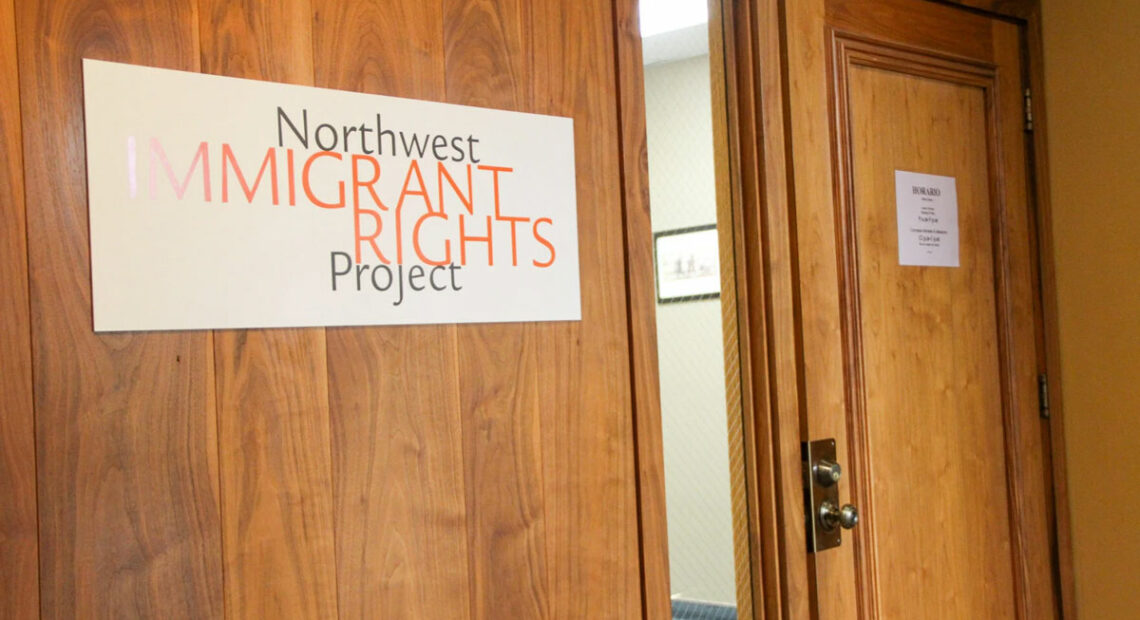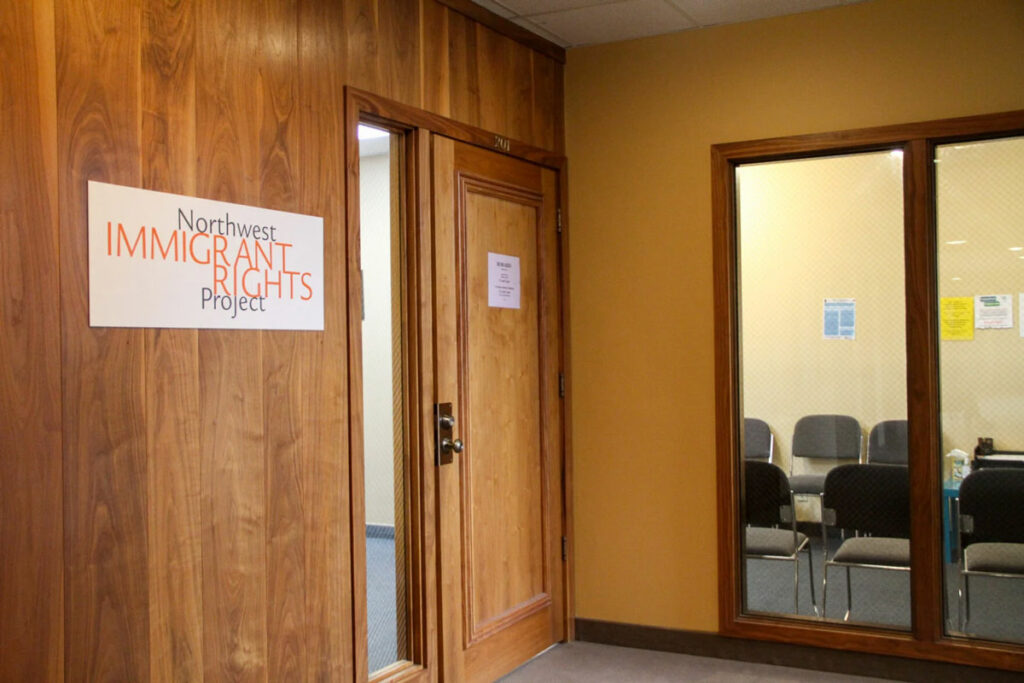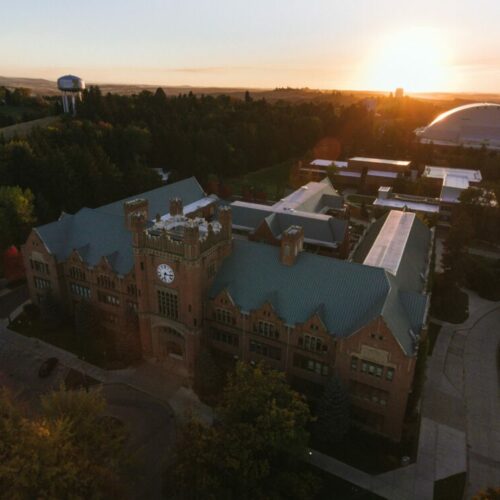
‘A humanitarian crisis’: Legal aid for unaccompanied minors slashed in Washington state
Listen
(Runtime 1:02)
Read
A federal judge in California ordered the Trump administration to temporarily restore legal aid for migrant children who are in the United States without a parent or guardian. The decision halts the administration’s efforts to block nonprofits from taking on new cases. However, after the ruling, immigrant rights groups say they’re uncertain about what comes next.
The Trump administration terminated a $200 million contract with Acacia Center for Justice, a national network that provides legal representation to immigrants at risk of deportation. The administration is directing immigration agents to track down hundreds of thousands of migrant children who entered the United States without their parents, expanding the president’s mass deportation effort, according to an internal memo reviewed by Reuters.
Northwest Immigrant Rights Project, a subcontractor with Acacia, was impacted and is currently not accepting new cases. The organization represents unaccompanied children across the Pacific Northwest.
Kayley Bebber, the unaccompanied children program’s directing attorney at Northwest Immigrant Rights Project, said this ruling does not fully restore the Unaccompanied Children Program’s contract as it existed before the cut.
“We have not received any further instruction about any portion of our contract being restored. So we will continue to wait. Hopefully, we will hear something soon,” Bebber said.
She said children in immigration court are not guaranteed the right to appointed counsel. Without legal aid, many children are forced to represent themselves in court.
Subcontractors who sued the federal government argued that the federal government is legally obligated to provide legal representation for unaccompanied children under the protection of children under the Trafficking Victims Protection Reauthorization Act of 2008. The law was designed to safeguard migrant children from abuse, exploitation and trafficking by ensuring they have access to legal counsel.
Previously, the contract, administered by the Department of Interior, funded legal orientations, pro bono representation and assistance for children seeking asylum or other humanitarian relief. Without these services, many could face deportation.
The Department of Health and Human Services oversees the care of migrant children. In 2024, the department received 98,356 referrals for unaccompanied minors, the majority of whom came from Guatemala, Honduras, Mexico and El Salvador. Now, many of them are left to maneuver the court system alone.

“This is devastating,” said Vanessa Gutierrez, Northwest Immigrant Rights Project’s deputy director. “We’ve had to stop taking new cases. We don’t know how many kids and young adults now have no legal help.”
NWIRP offers direct legal services and legal education for immigrants. One of the group’s services is providing free legal aid to immigrant youth released from federal custody. The group will continue to represent its current clients, but they have temporarily paused legal representation for new clients.
“Most youth can’t afford private attorneys,” Gutierrez said. “They’re up against federal prosecutors. Having us there helps them navigate a system stacked against them.”
The group currently represents about 500 unaccompanied minors, offering children legal counsel in complex immigration proceedings.
“ It’s a humanitarian crisis. If the government is not stepping up to provide them (unaccompanied youth) that support, they may be subjected to harm,” Gutierrez said. “They may not be able to access protections that they’re entitled to because they don’t know how to navigate this.”
For many unaccompanied children arriving in the U.S., legal protections exist — but they are difficult to access without legal representation, she said.
“That’s just almost impossible to navigate without a lawyer,” Gutierrez said.
The legal protection available for these children is limited — it only applies until they turn 21. This deadline creates a race against time, especially for those nearing adulthood.
“We have very young clients — how could a toddler navigate immigration court by themselves? It’s impossible,” Gutierrez said. “Unless their family has resources to hire a private attorney, most youth are forced to face this system alone.”
The lack of legal representation is particularly severe in rural areas. Unlike larger cities such as Seattle or Spokane, which have bigger law firms and nonprofit organizations offering pro bono immigration assistance, rural areas have fewer attorneys with immigration law expertise. Many lawyers in rural areas operate solo practices, making it difficult for them to take on free cases while sustaining their businesses.
“In Seattle, there are more private attorneys willing to take pro bono cases,” Gutierrez said. “But here, that just doesn’t happen as much. We don’t have those resources.”
Gutierrez said that this gap in legal aid has serious consequences. Without attorneys, many children in rural communities must travel long distances, increasing financial and logistical burdens and making legal assistance even harder to access.
“Imagine a teenager trying to find a lawyer in another city,” Gutierrez said. “The cost, the time away from school — it’s overwhelming.”
The project has funding sources outside of federal contracts, including state support and private donors, to support its current clients.
Gutierrez said the group is urging state lawmakers and Congress to support funding to prevent children from facing immigration court alone. Groups assisting immigrant youth are also pursuing pro bono partnerships and community fundraising efforts.
“We need to be talking to our members of Congress and saying, ‘Step up and support this funding,’” Gutierrez said. “These are children. They shouldn’t have to face this system alone.”
Reneé Diaz may be contacted at Renee.diaz@wenatcheeworld.com. Collaborative reporting by The Wenatchee World, NWPB and WSU’s Murrow College of Communication Newsroom Fellowship.
















